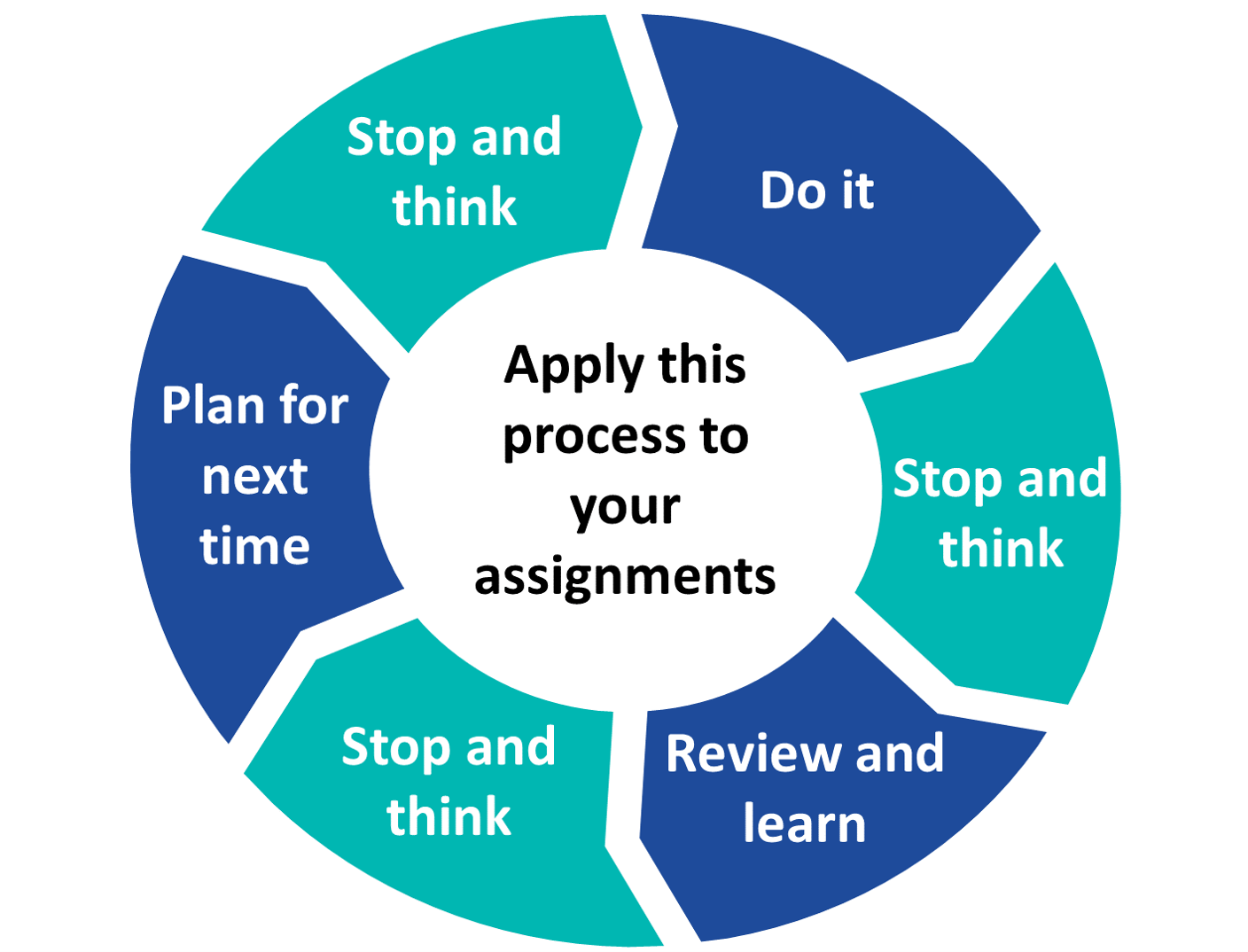Applying yourself to the learning cycle Making the most of your learning style
It is now widely accepted that the capacity to learn can be improved by:
- analysing how you do things
- being willing to try new things
- recognising what works best for you.
Being aware of your learning style and how effectively you are engaging with the learning materials will help you make better decisions about how you study in future.
Rather than rushing through study tasks without pausing, it can be useful to devise a strategy that allows time and space to reflect on what you are doing as you engage in different activities. This can involve:
- stopping to think about what you are learning
- developing awareness of your feelings and responses as you study
- recognising the choices that you face (for example, how to take notes)
- questioning your assumptions and preconceptions
- communicating with your tutor, and other students.
An example of the learning cycle: Do it - stop and think at strategic points in your course - review it and learn from it - stop and think at strategic points in your course - plan for next time - stop and think at strategic points in your course.

Listen to OU learning consultants, Gill and Maggie, explain the importance of building reflection into your study process.
Stop and think
Click here to listen 84Maggie (Learning Consultant)
We want students, whatever level, whatever the subject, to stop and think a little bit about their learning. To become a little bit more aware and to become aware of the need to be actively involved. But I think they also need to ask themselves sort of questions about what am I learning, why am I learning, how am I learning it, and to find for themselves what works best for them, because we all have preferences, we all have experiences, but we all need to be challenged by new developments that we're not actually familiar with. So I think that will be my first position.
Gill (Learning Consultant)
Yes, and I would say to expect and in fact look for those challenges. And the sign that you're being challenged is that you're starting to feel a bit uncomfortable. You're starting to feel a bit like, have you swum out of your depth? Because if you're not feeling any discomfort and you're not feeling a bit like you've swum further out than you ever have done, you're not really being stretched and those feelings are in fact good ones, they're productive ones. They're uncomfortable ones but they are signs that you're changing, you're entering new waters, you're taking a new journey.
Maggie
Balanced against that, I would also want to say that, within the Open University, and we're proud of this and we should be, there is always someone there to actually help you.